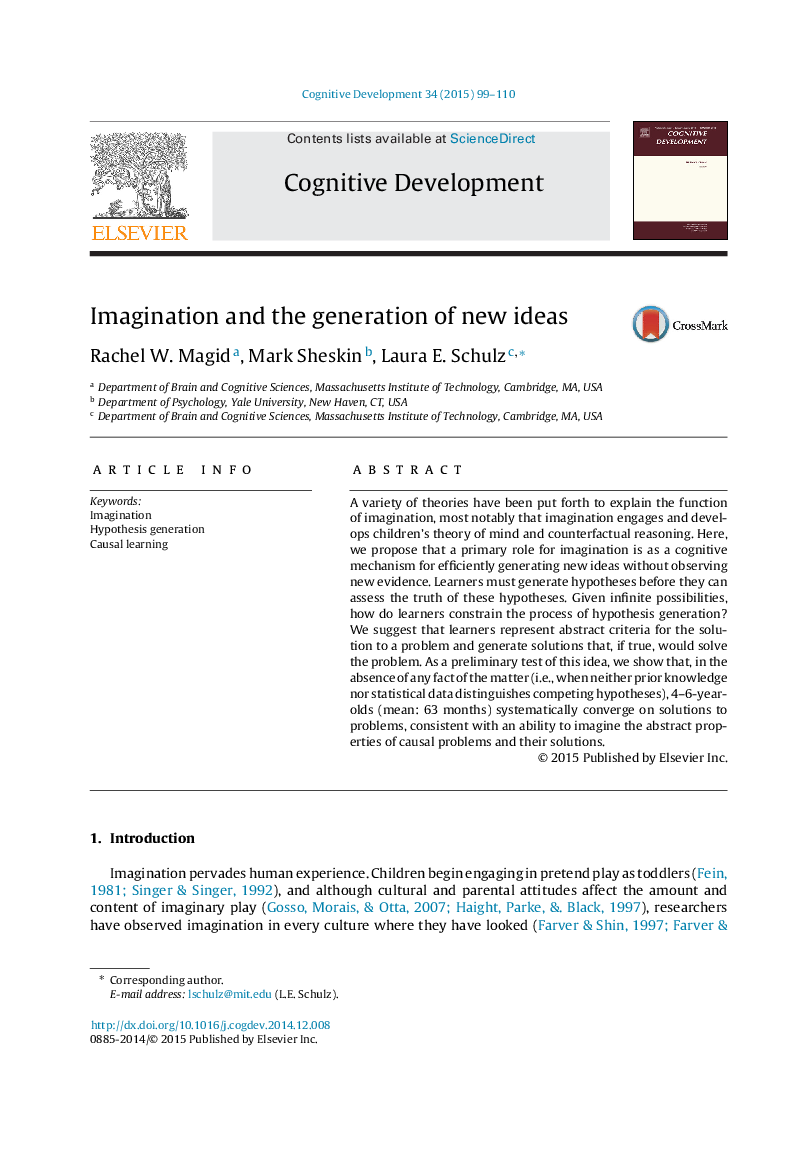| کد مقاله | کد نشریه | سال انتشار | مقاله انگلیسی | نسخه تمام متن |
|---|---|---|---|---|
| 916436 | 1473349 | 2015 | 12 صفحه PDF | دانلود رایگان |
A variety of theories have been put forth to explain the function of imagination, most notably that imagination engages and develops children's theory of mind and counterfactual reasoning. Here, we propose that a primary role for imagination is as a cognitive mechanism for efficiently generating new ideas without observing new evidence. Learners must generate hypotheses before they can assess the truth of these hypotheses. Given infinite possibilities, how do learners constrain the process of hypothesis generation? We suggest that learners represent abstract criteria for the solution to a problem and generate solutions that, if true, would solve the problem. As a preliminary test of this idea, we show that, in the absence of any fact of the matter (i.e., when neither prior knowledge nor statistical data distinguishes competing hypotheses), 4–6-year-olds (mean: 63 months) systematically converge on solutions to problems, consistent with an ability to imagine the abstract properties of causal problems and their solutions.
Journal: Cognitive Development - Volume 34, April–June 2015, Pages 99–110
